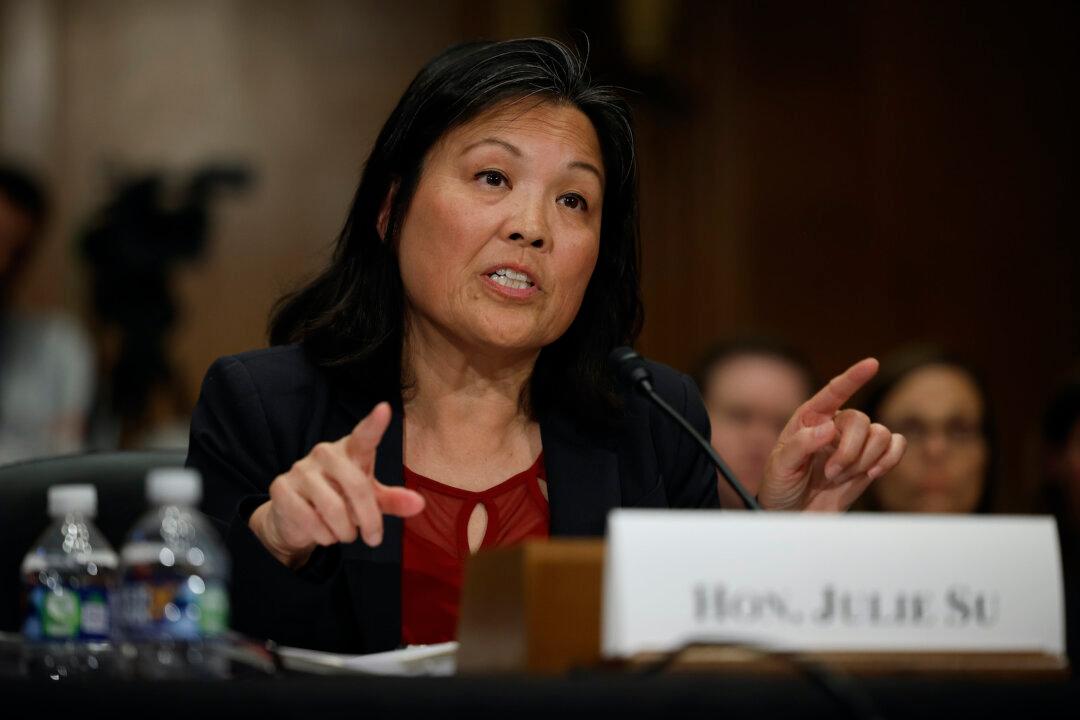Acting Secretary of Labor Julie Su, President Joe Biden’s nominee to become the secretary of the Department of Labor (DOL), was advanced by a Senate committee with a vote of 11-10 on Feb. 27. All GOP Committee members voted against her nomination.
The Senate Health, Education, Labor, and Pensions (HELP) Committee, led by Chair Bernie Sanders (I-Vt.), took up Ms. Su’s nomination for the second time in a closed-door committee after she failed to make it to the Senate floor during her last nomination.





